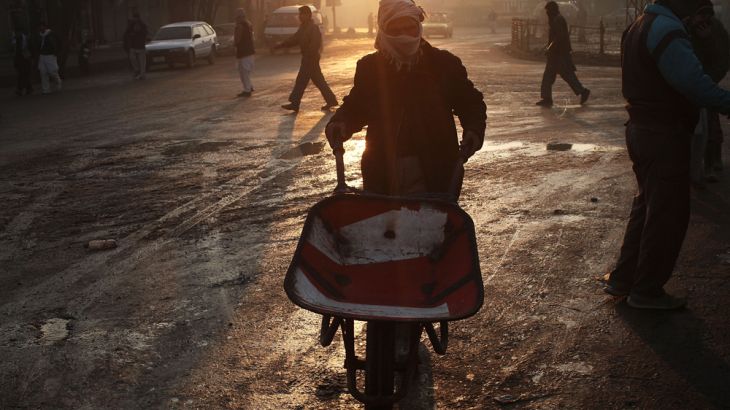
When Taliban offer you gold: Afghan youth in crisis?
Afghan job seekers, business leaders, and CEO Abdullah Abdullah give an insight into Afghanistan’s grim job market.
Among the hundreds of thousands of refugees entering Europe, a significant number is made up of young men from Afghanistan. Last year more than 100,000 Afghans fled to Europe, and the exodus continues.
But why are so many Afghans leaving their home country?
In Kabul’s Kote Sangi neighbourhood, painters, carpenters, plasterers and other manual workers sit outside waiting for someone to come by and hire them, even if only for a few hours.
This scene is replicated throughout the Afghan capital as thousands of casual workers hope to earn a dollar or more a day, the desperation etched on many faces. But their chances aren’t good. These men don’t have the family or the political connections often needed to get a job. And Afghanistan’s unemployment rate is estimated to be at 40 percent or higher.
”I’m
… please give me a job. I want to work for my country. I never want to leave my country.”]
Afghanistan’s economy still depends heavily on international aid and 61 percent of the country’s operating budget is funded by foreign donors.
The withdrawal of more than 100,000 NATO troops, and a scaling down of aid has shrunk the economy drastically. Building bases for the troops, staffing them, moving food and water to them, injected billions of dollars into the economy and employed tens of thousands of Afghans for years.
In response to the economic downturn, Afghan President Ashraf Ghani has launched the National Employment Programme in November 2015 to give thousands of Afghans job opportunities.
But will he succeed? How do do young Afghans feel about their country’s economic future?
On this week’s Talk to Al Jazeera in the Field, we examine the job market in Afghanistan. How does it really work? And what jobs, if any, offer some kind of future for the young people who decide to stay in Afghanistan?
We talk to business leaders who are looking for workers; the head of one of Afghanistan’s biggest recruitment companies; and job seeker Abdel Fatah, who studied sociology at Kabul University and wants to stay and work in his country.
Four years ago, when Fatah began his studies, his English language skills could have landed him a decent job with an aid organisation or a company working with international donors, paying $2,500 to $3,000 a month. Today, he would be happy with earning $200-$300 a month – this would cover rent, food, and other basic necessities.
He explains why other men his age are compelled to leave Afghanistan or join the Taliban or the Islamic State of Iraq and the Levant. They offer fighters $700 a month, which is more than twice what the Afghan army pays.
“In some provinces Taliban pay gold for the youth. I don’t know from where they bring the gold but they pay gold to young men to be with them,” says Abdel Fatah.
We also get the country’s chief executive, Abdullah Abdullah, to respond to what Fatah had to say about him and the government: “They [the leaders] have not the job problem and the food problem. Just the people have this problem. They never think about the people.”
Abdullah Abdullah says: “When I was his age, I had graduated … and I had a lot of opportunities to leave the country – the country was under occupation – but at the same time it was for the sake of the people. I was less that his age, apparently, when I joined the resistance against the Soviets. There are times when a country calls on its citizens and it is the citizens’ responsibility as well to see what they can do….
“All my life I have dedicated my life to the service of the people, and what I can do for him [Fatah] and millions of others – that’s my ultimate goal, but at the same time the citizens should also look and see what they can do for their country.”
You can talk to Al Jazeera too. Join our Twitter conversation as we talk to world leaders and alternative voices shaping our times. You can also share your views and keep up to date with our latest interviews on Facebook.